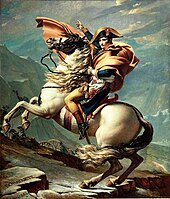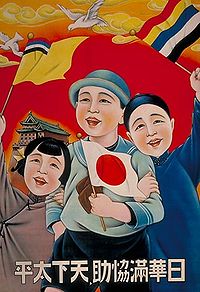- Willa Cather

Willa Sibert Cather was an American author who achieved recognition for her novels of frontier life on the Great Plains, including O Pioneers! (1913), The Song of the Lark (1915), and My Ántonia (1918). In 1923 she was awarded the Pulitzer Prize for One of Ours (1922), a novel set during World War I.
Cather grew up in Virginia and Nebraska, and graduated from the University of Nebraska–Lincoln. She lived and worked in Pittsburgh for ten years. At the age of 33 she moved to New York City, her primary home for the rest of her life, though she also traveled widely and spent considerable time at her summer residence in New Brunswick, Canada.
- Paul's Case
"Paul's Case" is a short story by Willa Cather. It was first published in McClure's Magazine in 1905.
Charactors:
- Paul, the eponymous protagonist. He is tall and thin, something of a dandy. He was born in Colorado and his mother died a few months later. He is bored by school, but passionate about music, especially the opera. He hates his middle-class life and longs for luxury
Paul's father, kindly and respectable but with little understanding of or sympathy for Paul's restlessness with his life
The Principal of Pittsburgh High School
The English teacher, a well-meaning woman whom Paul disdains
The Drawing master
The guard in the picture gallery of the Carnegie Hall
The soloist in the opera at Carnegie Hall
Paul's sisters whose mundane interests further alienate him
A young man whom Paul's father wants Paul to model after, but who embodies the middle-class life that Paul hates.
Charlie Edwards, Paul's friend who works as an actor- The college boy who spends a night with Paul in New York
- The Grapes of Wrath
The Grapes of Wrath is an American realist novel written by John Steinbeck and published in 1939. The book won the National Book Award and Pulitzer Prize for fiction, and it was cited prominently when Steinbeck was awarded the Nobel Prize in 1962.

Set during the Great Depression, the novel focuses on the Joads, a poor family of tenant farmers driven from their Oklahoma home by drought, economic hardship, agricultural industry changes and bank foreclosures forcing tenant farmers out of work. Due to their nearly hopeless situation, and in part because they are trapped in the Dust Bowl, the Joads set out for California. Along with thousands of other "Okies", they seek jobs, land, dignity, and a future.
- Propagandist
Propaganda is a form of biased communication, aimed at promoting or demoting certain views, perceptions or agendas. Propaganda is often associated with the psychological mechanisms of influencing and altering the attitude of a population toward a specific cause, position or political agenda in an effort to form a consensus to a standard set of belief patterns.
Propaganda is information that is not impartial and is used primarily to influence an audience and further an agenda, often by presenting facts selectively (perhaps lying by omission) to encourage a particular synthesis, or using loaded messages to produce an emotional rather than a rational response to the information presented.
Today the term propaganda is associated with a manipulative and jingoistic approach, but propaganda historically was a neutral descriptive term.



- Muckraker
The term muckraker was used in the Progressive Era to characterize reform-minded American journalists who wrote largely for all popular magazines. The modern term is investigative journalism, and investigative journalists today are often informally called "muckrakers." They relied on their own reporting and often worked to expose social ills and corporate and political corruption. Muckraking magazines—notably McClure's of publisher S. S. McClure—took on corporate monopolies and crooked political machines while raising public awareness of chronic urban poverty, unsafe working conditions, and social issues like child labor.


The muckrakers are most commonly associated with the Progressive Era period of American history. The journalistic movement emerged in the United States after 1900 and continued to be influential until World War I, when the movement came to an end through a combination of advertising boycotts, dirty tricks and "patriotism."
Before World War I, the term "muckraker" was used to refer in a general sense to a writer who investigates and publishes truthful reports to perform an auditing or watchdog function. In contemporary use, the term describes either a journalist who writes in the adversarial or alternative tradition, or a non-journalist whose purpose in publication is to advocate reform and change. Investigative journalists view the muckrakers as early influences and a continuation of watchdog journalism.


 留言列表
留言列表


